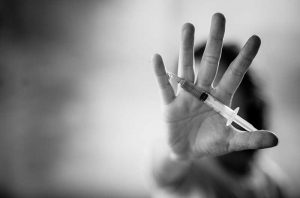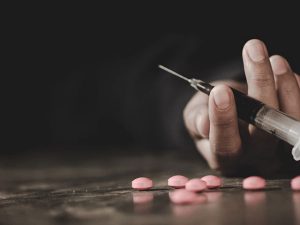Why Can’t I Stop Taking Drugs?
November 15, 2021

If you’ve been using drugs, and you now find that you can’t stop taking them, it’s not entirely your fault. What you have is a drug addiction, also known as a substance use disorder. If you have this condition, you will lose control of your actions.
Cravings for drugs will take over your brain, causing you to behave in ways that prioritize finding and taking drugs. Often, these drug-seeking behaviors are so strong that they cause you to lose concern for more important things like your job, family, friends, and hobbies.
Why is addiction so damaging? Are there drug addiction treatments that can help you live sober again? Read on and find the answers.
Drug addiction hijacks your brain
 Scientists from the National Institutes of Health (NIH) have studied drug addiction for a while. They have discovered that addiction is a complex, long-lasting disease of the brain. As with any disease, it can be treated.
Scientists from the National Institutes of Health (NIH) have studied drug addiction for a while. They have discovered that addiction is a complex, long-lasting disease of the brain. As with any disease, it can be treated.
NIH research has also shown that drug addiction treatments can help you manage this condition. Though in many cases, there is always the possibility of the addiction coming back, also known as relapse. But if you are committed to taking back control of your life, going through treatment gives you good prospects later on.
Biologically speaking, drugs can disrupt the normal function of your brain’s reward circuits. At first, drugs can give you pleasure, which you keep wanting more of. The effects of drugs can hook you into taking more, because you want the pleasurable highs so much.
But the more you take drugs, and the longer you use them, they change those natural reward circuits. In effect, you will feel stressed, anxious, or down when you avoid taking drugs. At this point, you will no longer take drugs for pleasure and satisfaction. Instead, you will take them just to avoid feeling bad.
If you keep using drugs, they can also damage the prefrontal cortex, which is the part of your brain that allows you to make good decisions. Addiction affects sound judgment. With that, you will find it hard to control your drug use, even if you’re aware of the negative effects on your life.
Because of how drugs can drastically rewire your brain, controlling your drug use becomes extremely hard. Not being able to stop is not entirely a moral failure; this is a common misconception about drug addiction. It takes more than willpower to get rid of it.
What are the warning signs of drug addiction?
Most of the time, drug addiction is not a “silent” disease. It shows many signs, such as:
- Anxiety
- Depression
- Difficulty sleeping
- Memory problems
- Mood swings
- More frequent requests to refill prescriptions
- General lack of interest for activities you normally do
- Being overly energetic
- “Doctor shopping” or going to different doctors to get more prescriptions for the same drug
- Forging prescriptions
- Spending too much time finding and taking drugs
- Abandoning responsibilities at work or school just to take drugs
- Distancing yourself from friends and family
- Being secretive about your drug use
- Losing money over drugs
- Getting involved in criminal activity (e.g. theft, carjacking, or assault) because of drugs
If you show any of these signs, it’s time to get professional help. Drug addiction treatment is the best way to live sober again.
A brain hijacked by drugs can be restored
T he good news is drug addiction treatment can counter most of the ill effects. But it does take time and effort to restore the brain to a sober state.
he good news is drug addiction treatment can counter most of the ill effects. But it does take time and effort to restore the brain to a sober state.
According to Dr. George Koob, director of the National Institute on Alcohol Abuse and Alcoholism (NIAAA), addiction damages the brain and it takes a lot of effort to return it to normal. The more drugs or alcohol you’ve consumed, the more detrimental it is to your brain.
For most addictive drugs, there are medications that help you control cravings and eventually stop using those drugs. When applied in combination with behavioral therapies, your recovery outcomes become a lot better.
But there is not one treatment regimen that can be considered the best for all cases. Each person suffering from a drug addiction has different circumstances. Also, different patients are addicted to different drugs, so treatment options will always vary.
The best drug addiction treatment is one that’s customized to your specific needs. For example, if you’re addicted to opioids, your treatment will be different than when you’re addicted to stimulants.
Treatments also depend on your current physical health and mental health. If you happen to have another mental health problem alongside drug addiction, treatment will again be different. You will require something known as a dual diagnosis and specialized treatments for co-occurring disorders.
If the mental health problem is not treated along with the addiction, the former may become worse after treatment. Alternatively, an underlying mental health problem can increase the chances of the addiction relapsing shortly after treatment is over.
How can drug addiction treatment restore a drug-damaged brain?
 Addiction treatment addresses both the biological and psychological aspects of addiction. Medications and detox deal with the biological effects of addiction. They counteract the physical effects of drugs on the brain and body. Some medications also help minimize withdrawal symptoms, allowing you to taper off your drug use more comfortably.
Addiction treatment addresses both the biological and psychological aspects of addiction. Medications and detox deal with the biological effects of addiction. They counteract the physical effects of drugs on the brain and body. Some medications also help minimize withdrawal symptoms, allowing you to taper off your drug use more comfortably.
Behavioral therapies, on the other hand, deal with the psychological effects of addiction. Techniques like cognitive behavioral therapy and counselling help you identify the root causes of your addiction. Also, they help you become aware of the things that trigger your desire to take drugs. Later on, you will learn to watch out for these drug triggers and actively avoid them.
Behavioral therapies will additionally help you develop new, healthy habits. Eventually, these will take over your compulsion to use drugs. Building these new habits will take time and much effort on your part.
But if you are fully committed to your recovery, you can develop healthy habits sooner. Combined with your knowledge of drug triggers and prevention methods, you can take back control of your life after treatment.